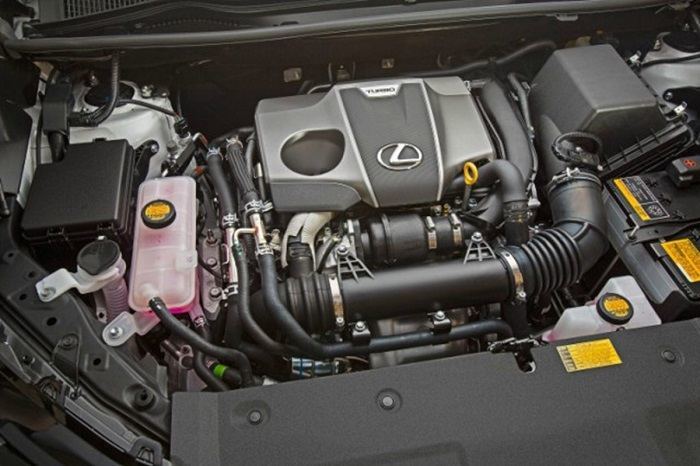by Joshua Thomas
You might not be fully aware of what an engine misfire means or even know what causes it. To make it easy to understand, you need to know the three things that are required to cause fire or an explosion in the cylinder. These are oxygen, fuel, and a firing spark.
If any of these misses in the equation, then the engine will not produce the required firing inside the cylinder. This is essentially a misfire, which can be defined as a temporary or continuous hesitation in power delivery from the engine.
Contents

It is not safe to drive with a misfiring engine. It's not that it may cause your car to be unstable on the road, but it will cause very expensive damage.
Basically, when a misfire occurs, fuel is not burnt inside the cylinder. This means that unburnt fuel vapor will run out through the exhaust system and through the catalytic converter.
In normal circumstances, a properly functioning catalytic converter operates at very high temperatures and unburnt fuel will naturally burn in such an environment.
Considering that this component consists of a delicate honeycomb structure, there is a high possibility that this structure will be damaged by the resulting fuel explosion. If this happens, the only solution will be to get a new converter.
Doing this replacement will cost you quite a lot and therefore, it is better to deal with the misfire before it deals you a blow to your pocket.

When a misfire occurs, it means one or some of the cylinders are producing less power than they are required to. This results in slow acceleration.
Additionally, misfires can cause the oxygen sensor to generate faulty information, which will lead to the production of either a rich or lean air/fuel ratio. Such a ratio won’t burn as efficiently, resulting in poor acceleration.
Another very common misfiring symptom is rough idling and this is can be attributed to the fact that the cylinders are not burning fuel evenly while also producing less than the required power output.
This causes a lot of unevenness, with the idling RPM sometimes dropping below normal due to low power output.
Since you will get less power and slower acceleration, the natural way to compensate for this is to press the gas pedal harder and this results in higher fuel consumption.
Even if the misfiring effect is very minuscule and cannot be detected from rough idling or vibrations, it is inevitable that you will start noticing reduced mileage as some of the gas will exit the combustion chamber unburnt.
This will also result in harmful gas vapor emissions that you can actually smell if the issue is very severe.
Though this may not directly mean that it is a misfiring problem, in most cases, when the “check engine light” is on, it implies so. If you have experienced any of the other symptoms explained above, then this light will only assure you of what the problem is.
What happens is that the different sensors send data to the car’s onboard computer, which will then decide if the data it receives is right or wrong.
If it detects wrong data continuously, then it powers on the “check engine light” on the dashboard to inform you of the error.
In most cases, the crankshaft position sensor is the one that detects misfiring and communicates with the computer accordingly.
Read More: Camshaft Position Sensor Failure Symptoms
Engines are built to run smoothly when there is perfectly synchronized and balanced cylinder firing.
Misfiring causes unevenness in explosions inside the cylinders, and this will make the engine to be highly unbalanced. Therefore, heavy vibrations in the cabin should be expected if your engine has this issue.

The ignition system consists of many components such as the ignition coil, spark plugs and even distributors in older vehicles. These wear out over time and if either one of them is not functioning properly, it may cause a misfire because it may interfere with the creation of a spark.
Solution
Change the damaged part. Always remember to replace these ignition system components (especially the spark plugs) after they complete their lifespan, which should be given by the manufacturer.
If the ignition system is in proper condition, the next most probable suspect is the fuel system. You need to check for dirty fuel injectors, clogged fuel filters, a failing fuel pump or failing airflow sensor.
Read More: The Best Fuel Injector Cleaners
Though these components don’t wear out that fast, it doesn’t mean that one of them cannot get faulty.
Solution
If you find any of these to be worn out, you need to replace the part. It is not recommended to do this on your own unless you really know your way around engines. Visit a mechanic to get the error fixed.
Note: In most cases, faults in the fuel system are caused by contaminated fuel and therefore, ensure you refuel your car at trusted gas stations from well-known brands.
Though not very common, damaged cylinder walls can also cause misfiring and this can be identified by popping and sneezing sounds, as well as a strong odor of gas, steam, and coolant combined.
Solution
If you spot such an issue, take your car to the mechanic as soon as possible so that he/she can inspect the engine.
Engine misfires can also be caused by complex mechanical problems such as leaks around the intake manifold gaskets, lack of compression (due to leaks in the exhaust valve), a stretched-out timing chain or a worn-out chain tensioner.
Solution
Such problems are very hard to solve on your own because you have to take some of the engine parts apart so as to fix the leaks or adjust the timing chain. It is best to leave this work to a professional mechanic.
In summary, if you detect a misfire and determine that it is a result of faulty spark plugs or other parts of the ignition system, you can easily do the replacement on your own.
However, for any other cause, it is recommended to take your vehicle to a professional car repair center because you can easily damage your engine and make the problem worse if you attempt a DIY repair.
Sources
 |
 |
 |
 |

About Joshua Thomas
Joshua Thomas just simply loves cars and willing to work on them whenever there's chance... sometimes for free.
He started CarCareTotal back in 2017 from the advices of total strangers who witnessed his amazing skills in car repairs here and there.
His goal with this creation is to help car owners better learn how to maintain and repair their cars; as such, the site would cover alot of areas: troubleshooting, product recommendations, tips & tricks.
Joshua received Bachelor of Science in Mechanical Engineering at San Diego State University.